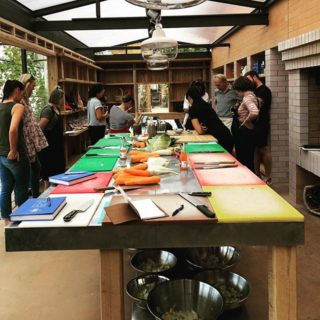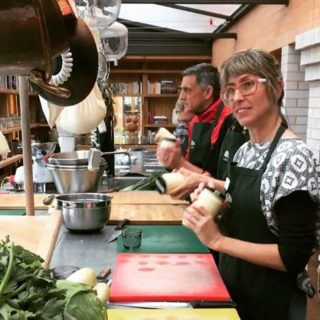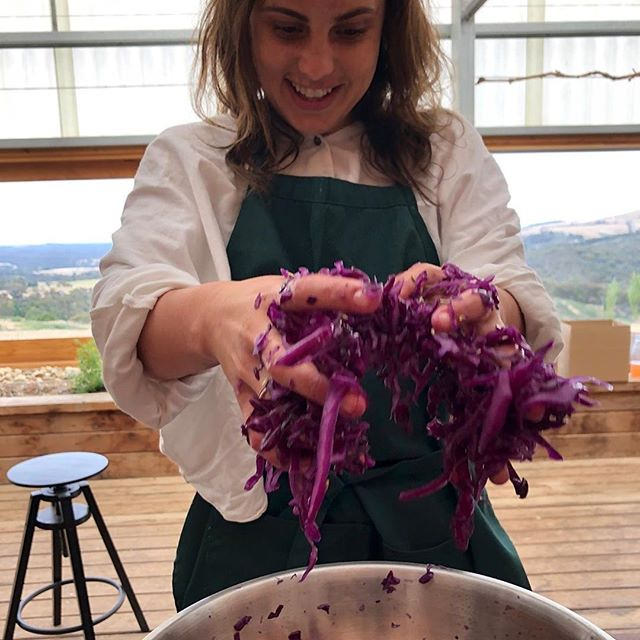There are whole shelves of books, documentaries, tv shows and articles everywhere on gut health, your microbiome, the gut-brain connection, gut health for immune-boosting, anxiety, depression, bad guts, clever guts… Books on what not to eat, how to eat, when to eat, what’s bad about fermented foods, or great about them and gut-health specific diets.
“When I started talking to some of my keen and health conscious friends about how great our wild and slow fermented kraut was in 2013 they went straight to their naturopath for confirmation. At that time, most practitioners would say that they’d never heard of ferments or might prescribe a probiotic,” says Sharon Flynn of The Fermentary, widely regarded as Australia’s fermentation pioneer.
She was joined by chef and partner Roger Fowler, in leading a class focused on fermenting vegetables at Daylesford Longhouse. This was a half-day course where we focused on producing ‘slow’ food in a fast world and touched on the importance of provenance in the food that we eat.


The art of fermentation preserves nutrient dense foods, and participants learnt just how easy it was to preserve at home and provide nutrient-dense foods for their families, minimizing food waste at the same time.

According to Sharon, the process of healing a gut is never complete. Like exercise, it is an ongoing process, rather than a one-off effort.
We need to make an educated effort to feed ourselves well. To sum it all up, Sharon has a few tips. “I would summarise how to eat for your gut like this: eat less, eat fewer simple carbohydrates, eat slowly, chewing well, aim for mostly whole, non-processed foods. Eat more living foods more often. Eat lots of plants. Make an effort for yourself. Don’t eat for just weight loss. Eat and prepare food with people.”